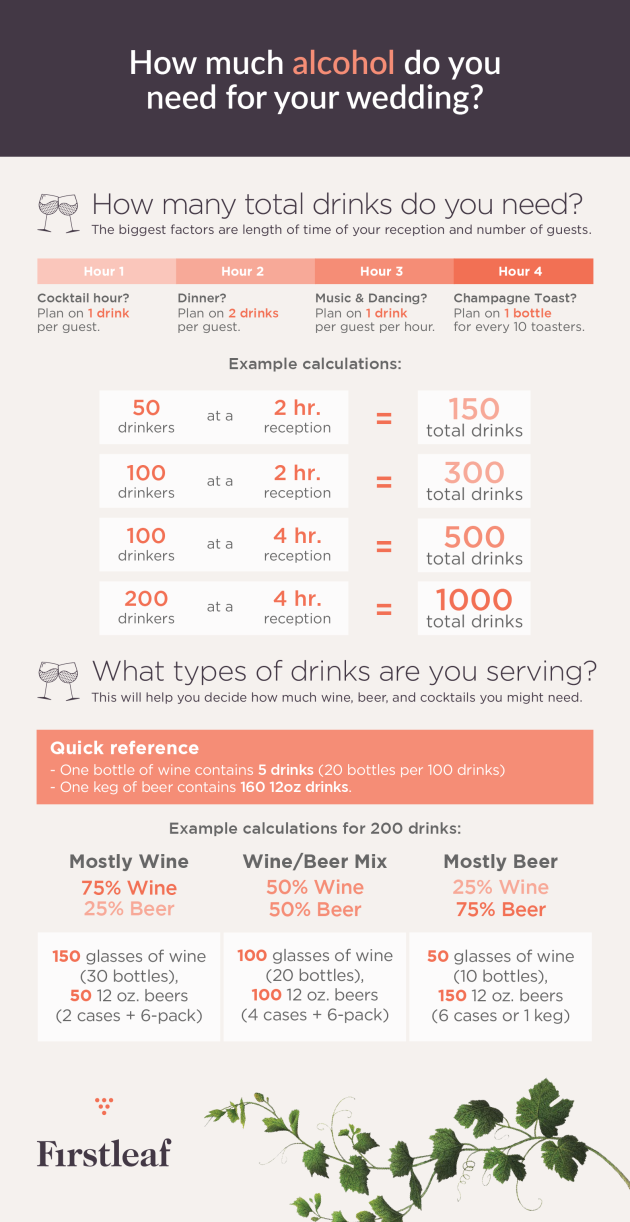The Best California Wines for a Wedding
California is one of the world's top wine regions. It only makes sense to pair your California wedding with a California wine.
Of course, you also want the wine to pair with your food — and please your guests. Here are some recommendations for choosing California wines to serve at your wedding.
The Incredible Variety of California Wines
California's diverse geography is what makes it such a tremendous place to make wine. We have so many different types of climates, that Californians can experiment with nearly all of the globe's traditional varieties.
The best way to pick wine is to try to match what you are serving with the geographical location that the food or cuisine originates from. For instance, if you are serving seafood, choose a lighter wine from the Central Coast. If you are going with beef or pork, consider a wine from a more inland area, where livestock are traditionally grown.
Choosing a Specific California Region or Winery
You may want to choose a particular wine from the area where you live, from the area where you are having your wedding, or from a specific winery that is meaningful to you. If you're having your wedding at a winery, it only makes sense to feature their product.
In this case, I'd recommend choosing the wine first, then selecting the food.
The reason for this is that certain wines go best with certain foods. If you choose a light-bodied wine like a pinot noir from a winery you love, then pair it with a heavy-flavored dish like beef, you won't be featuring the wine in the best light.
Talk to the winemaker about the best food pairing for their varietals. Or, if you are making a large order, ask your caterer and winemaker to connect. You or your wedding planner could even arrange a food and wine pairing sample menu.
Choosing the Right Wine for Your Guest List
Once you've narrowed your search to a specific winery or varietal, it's time to start thinking about your audience — the people who'll actually be drinking the wine.
Would you describe the people on your guest list as experimental when it comes to wine? People who reflexively order the same type every time? Or people who really don't drink wine at all?
For a crowd of wine connoisseurs, who are used to unique wine experiences, you might consider a more bold wine, like a peppery Monterey County syrah.
If the folks on your list are into the more tried-and-true varieties, or rarely drink wine, one of the more crowd-pleasing, popular varietals might be a better choice. A Central Coast chardonnay, for example, with that region's soft fruit tones and well-rounded flavors, is something everyone can enjoy. an
How Much Wine Should You Buy?
There are three factors that determine how much wine you should buy for your wedding.
How many guests are coming
The duration of your dinner / reception
Whether you are serving other alcoholic beverages
The rule of thumb for all events that serve alcohol is this: Expect each drinking guest to have two drinks during the first hour, and one drink for every hour thereafter.
So if you expect 50 drinkers at your reception, and the dinner / reception is five hours long, you'll be providing 100 drinks in the first hour, and 50 for each of hours two, three, four, and five — a total of 300 drinks.
If you're serving beer or liquor as well, you won't need all 300 of those drinks to be wine. Make your best guess as to which guests will want which type of drink, and make your list from there.
Sometimes you'll have unique considerations, like if you're serving a specialty cocktail. Read this guide to figuring out some of these advanced scenarios.
You'll eventually figure out how many glasses of wine you need to provide. A bottle of wine has approximately 5 glasses, while a case of wine (12 bottles) provides 60 glasses of wine.
A Word About Pouring
As wedding day approaches, there's one final thing you'll have to consider — who's going to serve, open, and pour the wine?
Unless you choose a twist-top wine, you probably want all those bottles open and ready for guests to pour. You can do this as many as several hours ahead of time for red wine (in fact, opening the wine early helps release additional flavors). White wines are traditionally served chilled, so you may want to have ice buckets for the table or bar.
And one final recommendation—don't forget to save a few bottles! You can keep them for anniversaries, or when you just want a reminder of that special day.








